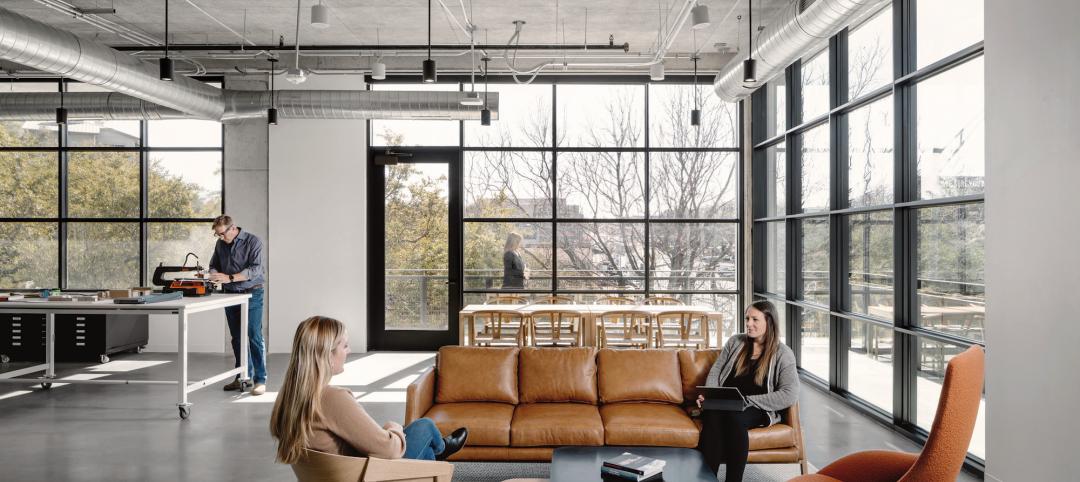The recent approval of the Southern Pine Inspection Bureau’s (SPIB) new design values for visually graded Southern Pine lumber by the American Lumber Standard Committee (ALSC) Board of Review has generated more questions among producers and customer groups.
The Southern Forest Products Association (SFPA) facilitated a task group of industry leaders representing key customer groups to develop answers to the most commonly asked questions regarding new design values and their implementation. This new collection of questions and answers is now available at www.southernpine.com.
SPIB issued Supplement No.9 to the 2002 Standard Grading Rules for Southern Pine Lumber providing new design values effective June 1, 2012.
The only design values that will change on June 1 apply to visually graded Southern Pine and Mixed Southern Pine sized 2 to 4-in-wide and 2 to 4-in-thick (2x2s through 4x4s) in No.2 and lower grades (No.2, No.3, Stud, Construction, Standard and Utility).
What about dense and nondense lumber? What about prime lumber grades? What happens between now and June 1?
These are among the new questions answered in SFPA’s updated web pages. A helpful table is included listing the new design values for Southern Pine and Mixed Southern Pine, effective June 1, 2012.
Answers address transition issues, how to obtain similar load-carrying capabilities, and why only some grades and sizes are affected at this time. More than two-dozen questions are answered in this updated collection, including a supplemental set of questions with answers providing important background information on this issue.
“The effective date of June 1 allows for an orderly transition to the new design values,” says Cathy Kaake, SFPA’s senior director of engineered and framing markets. “These answers address the most common questions raised since the ALSC’s decision earlier this month,” she adds.
The Southern Forest Products Association (SFPA) continues to facilitate the dialog about new design values and their implementation. Between now and June 1, SFPA will provide more information as it becomes available; check www.southernpine.com frequently for updates. BD+C
Related Stories
Adaptive Reuse | Jul 27, 2023
Number of U.S. adaptive reuse projects jumps to 122,000 from 77,000
The number of adaptive reuse projects in the pipeline grew to a record 122,000 in 2023 from 77,000 registered last year, according to RentCafe’s annual Adaptive Reuse Report. Of the 122,000 apartments currently undergoing conversion, 45,000 are the result of office repurposing, representing 37% of the total, followed by hotels (23% of future projects).
Hotel Facilities | Jul 26, 2023
Hospitality building construction costs for 2023
Data from Gordian breaks down the average cost per square foot for 15-story hotels, restaurants, fast food restaurants, and movie theaters across 10 U.S. cities: Boston, Chicago, Las Vegas, Los Angeles, Miami, New Orleans, New York, Phoenix, Seattle, and Washington, D.C.
Sustainability | Jul 26, 2023
Carbon Neutrality at HKS, with Rand Ekman, Chief Sustainability Officer
Rand Ekman, Chief Sustainability Officer at HKS Inc., discusses the firm's decarbonization strategy and carbon footprint assessment.
Sports and Recreational Facilities | Jul 26, 2023
10 ways public aquatic centers and recreation centers benefit community health
A new report from HMC Architects explores the critical role aquatic centers and recreation centers play in society and how they can make a lasting, positive impact on the people they serve.
Multifamily Housing | Jul 25, 2023
San Francisco seeks proposals for adaptive reuse of underutilized downtown office buildings
The City of San Francisco released a Request For Interest to identify office building conversions that city officials could help expedite with zoning changes, regulatory measures, and financial incentives.
Designers | Jul 25, 2023
The latest 'five in focus' healthcare interior design trends
HMC Architects’ Five in Focus blog series explores the latest trends, ideas, and innovations shaping the future of healthcare design.
Urban Planning | Jul 24, 2023
New York’s new ‘czar of public space’ ramps up pedestrian and bike-friendly projects
Having made considerable strides to make streets more accessible to pedestrians and bikers in recent years, New York City is continuing to build on that momentum. Ya-Ting Liu, the city’s first public realm officer, is shepherding $375 million in funding earmarked for projects intended to make the city more environmentally friendly and boost quality of life.
Market Data | Jul 24, 2023
Leading economists call for 2% increase in building construction spending in 2024
Following a 19.7% surge in spending for commercial, institutional, and industrial buildings in 2023, leading construction industry economists expect spending growth to come back to earth in 2024, according to the July 2023 AIA Consensus Construction Forecast Panel.
Hotel Facilities | Jul 21, 2023
In Phoenix, a former motel transforms into a boutique hotel with a midcentury vibe
The Egyptian Motor Hotel’s 48 guest rooms come with midcentury furnishings ranging from egg chairs to Bluetooth speakers that look like Marshall amplifiers.
Office Buildings | Jul 20, 2023
The co-worker as the new office amenity
Incentivizing, rather than mandating the return to the office, is the key to bringing back happy employees that want to work from the office. Spaces that are designed and curated for human-centric experiences will attract employees back into the workplace, and in turn, make office buildings thrive once again. Perkins&Will’s Wyatt Frantom offers a macro to micro view of the office market and the impact of employees on the future of work.

















